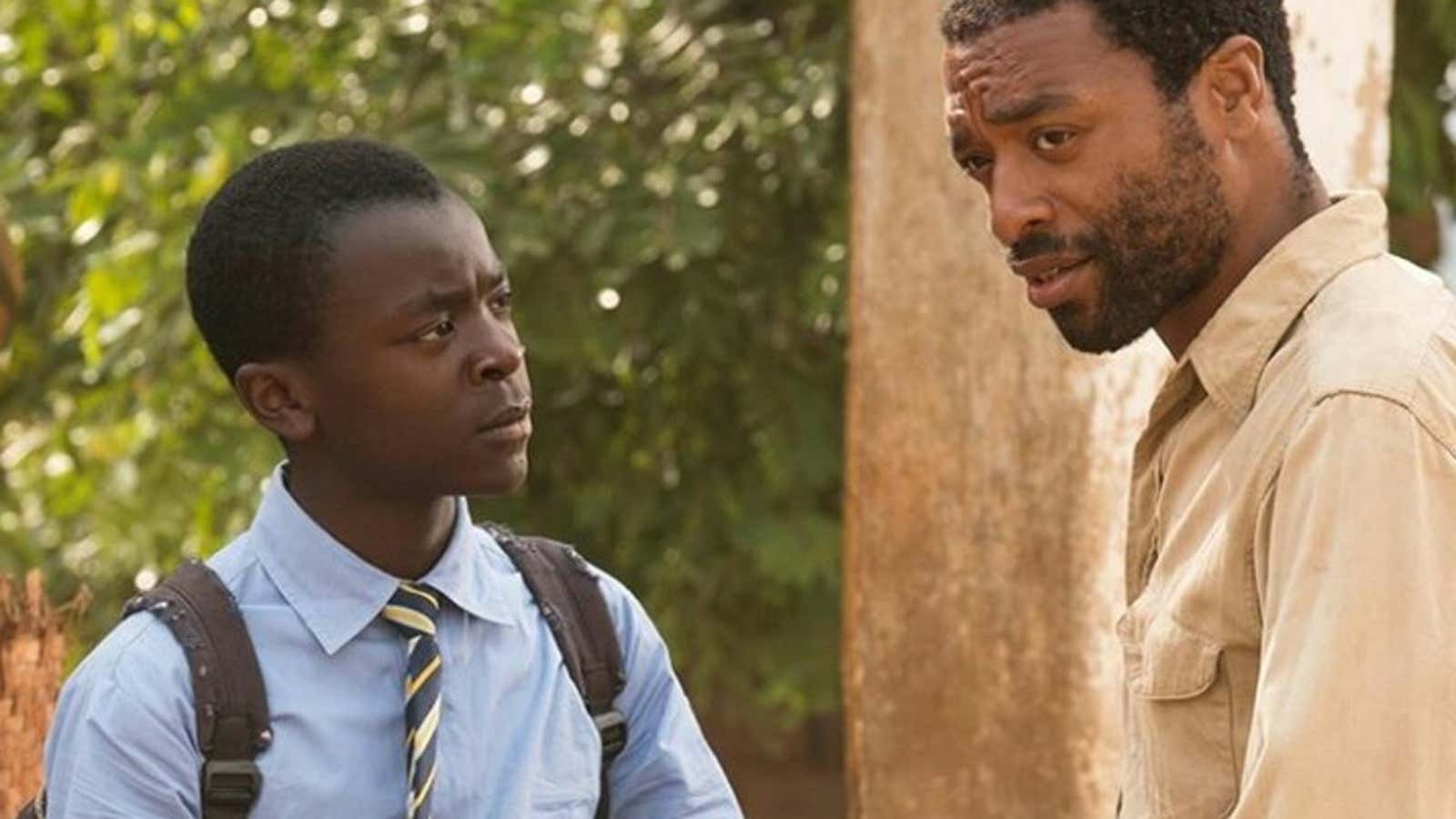After Netflix’s The Boy Who Harnessed the Wind became available on Mar. 1, I dived right in as I’m always fascinated to see how stories out of Africa are framed on the global stage through film.
The film is an adaptation of Malawian author William Kamkwamba’s memoir, co-written with Bryan Mealer. It narrates the story of a family and a community that grapples with a food crisis based on events in early 2000 Malawi.
Hollywood star Chiwetel Ejiofor is both the director and plays the role of Trywell, the father of William played by young Kenyan actor Maxwell Simba. The film brought together a multi-national cast featuring Aïssa Maïga, a Senegalese-born French actress who plays William’s mother Agnes, Lemogang Tsipa, a South African actor who takes the role of a teacher and Noma Dumezweni, an English actress of eSwatini origin.
With Ejiofor being British-Nigerian, I was curious as to how he would deliver a film that features a famine in Africa without stripping away the humanity and agency of the people as it all too often done. He manages to show the hard work of a people betrayed by a complex range of factors; climate change, a corrupt and violent government and the impact of global companies on local environment. But even in the face of such complexity and high handedness, there are honest community leaders pushing for government to put community first.
This Malawian story resonates on so many levels. If you speak Bantu languages you will be lucky to catch many phrases in Chichewa, the language of the film which will sound like home and the film runs back and forth between Chichewa and English.
I have read critics of the actors’ language grasp and it’s understandable when your home story is delivered in anything short of your people’s proficiency but the power of this feature film remains. Ejiofor’s dedication to take on a story, set in its original place and tell it in the language is something that should be normalized. You can tell African stories in African languages and get the success and recognition you deserve.
Many of the scenes and settings were familiar and relatable for many of us from average rural homes that struggled and still struggle to educate children. That heart-in-mouth moment when the teacher read your name out loud because your parents hadn’t paid school fees and you had to make the humiliating trek home. The dogmatic school system and structure the British left behind and that many poor communities retain was all too familiar.
But there was fun and life lessons like the clever ways you beat the odds, find a way to come back to class or library as you pray your parents soon get the money.
William’s sister’s story is what millions of young girls go through on the continent. Anne finishes secondary school but cannot get into university because of the food crisis has depleted the family savings. Reasons might vary but Anne is like millions of girls as we see the continent’s higher education gross enrollment rate remains lower for women in the absence of financial aid programs to better target low-income students. Anne ends up escaping with her teacher as they are both affected by the crisis.
The star of the film William who perfectly played by Maxwell, a young Kenyan actor delivers the story about innovation at a time when this has become a buzzword only to have meaning for few educated urban dwelling youth in some few scattered hubs across the continent. How would a William be supported in today’s world where a lot is going into innovation of a particular kind while underestimating the capacities of many children’s creativity.
William’s story shatters the stereotypes that many current innovation efforts keep targeting. The knowledge of many disadvantaged young people, who are the majority of our countries, must be tapped into beyond lip service if the story of William teaches us anything.
William’s windmill, an idea he picked by stealthily reading some of the oldest books his local school library saved a community from famine yet the question remains how much has been built on his efforts to serve communities in Malawi.
The very flooding problem William’s family faces in the early 2000s is still a huge issue there with more than twenty people dead and thousands affected by the latest flooding. The resilience of Trywell and his family and the creativity of William shows the improvisation and skills that can be harnessed when faced with a crisis but ultimately, the answer lies in the good governance that the family was pushing for. Their skepticism towards the state of democracy speaks to many.
Sign up to the Quartz Africa Weekly Brief here for news and analysis on African business, tech and innovation in your inbox
